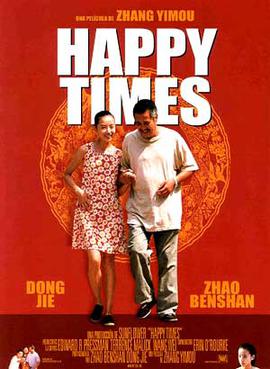The director of Ju Dou, To Live, and Not One Less, China’s Zhang Yimou is a brilliant master. Small, amusing and sad, his Happy Times (2002) concentrates on a shortchanged person, a pared-down life—that of Wu Ying, a girl made blind by a brain tumor and treated ignobly by her husband-less stepmother. The man who wishes to marry the stepmother is Zhao, a fiftyish loser of sorts so tired of bachelorhood that he lies to the stepmother about owning a big hotel. Stirred by this, the woman asks Zhao to hire Wu Ying as a hotel masseuse; she wants the girl out of the way. Hence Zhao rigs up a phony massage room and leads Wu to believe she is servicing customers who are in reality Zhao’s helpful friends. The unseeing girl enjoys the “work” and considers these brief days the happiest of her life.
In this film one deprived soul immorally uses another deprived soul. The lying little man is luckless, but the blind Wu Ying is more so, and yet Zhao does do something for the girl. Indeed he can even be very kind to her; such paradoxes! Largely, though, he is merely kind to himself, and things go into a tailspin. For Wu, is it only through deception that happy times can be had? What’s more, self-deception appears to plague both characters.
Zhao Benshan is capital as Zhao with lower-class ordinariness and ingenuous appeal, believable as a puritanical bachelor. Dong Jie is absolutely winning with Wu Ting’s guilelessness and forbearance, but is not a cardboard saint. Zhang’s direction is standard but careful and felt, perhaps reflecting an admiration for contemporary Iranian filmmakers. Happy Times has heart; it has the heart of Not One Less, quite different from Zhang’s earlier great, nigh depressing pictures, although some might find Happy Times depressing too.
(In Mandarin with English subtitles)



